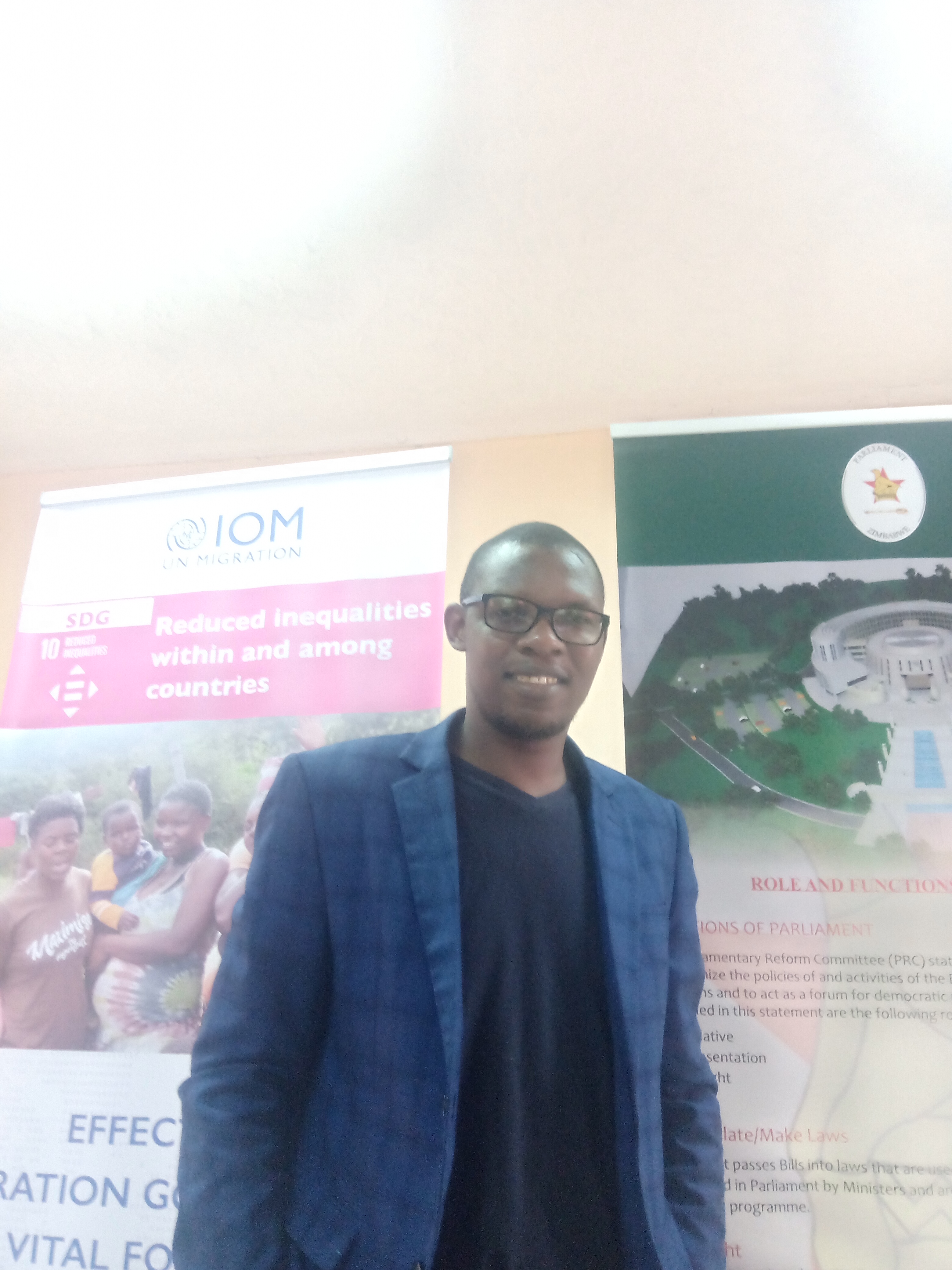The Ninth Parliament of Zimbabwe has been urged to expedite total re-alignment of the laws to the Constitution so as to strengthen migration legislation that promotes migrant rights.
Dr. James Tsabora, a Consultant with the Centre for Applied Legal Research in his address to Parliamentarians at a workshop on migration underway in Kadoma said full implementation of the 2013 Constitution can progressively improve migration governance.
“This is in relation to the criminal justice system as outlined in Sections 50; 69 and 70 of the Constitution. Section 75 on the education and higher education system when implemented has benefits to migrants and so is health service provision outlined in Section 76. Low hanging fruits also lie in the labour and employment system in Section 65 as well as the safety, security and property rights as outlined in Sections 49; 51; 52; 56 and 72 of the Constitution,” Dr. Tsabora said.
Migration governance is centred on a domestic legislative framework, that is, pieces of legislation like the Immigration Act.
Dr Tsabora said several government departments implement and enforce this legal framework. He however bemoaned a massive disconnect between the progressive constitutional and domestic law.
He urged Parliament to fully align important pieces of legislation, especially expediting the Immigration Amendment Bill.
“Migration management institutions must be based on the principle of intra-governmental cooperative governance. The cross-sectoral nature of migration issues must characterise relevant provisions and institutions. Standards in primary migration laws must cross-pollinate other relevant laws and regulations. The Department of Immigration must be central in the regulation and administration of migration issues,” Dr. Tsabora added.
Dr Naomi N. Wekwete of the Centre for Population Studies at the University of Zimbabwe bemoaned the issue of prevalence of trafficking in persons in the country. She alluded to a number of factors as leading to such a development.
She cited poor economic performance and corruption as some of the chief drivers of trafficking in persons. On another hand, traditional beliefs on wealth creation and extended family culture to some extent are also the causes of this phenomenon, The issue of Internet where false job adverts are flighted has also been found to drive this.
Dr. Wekwete said there is need to address the root causes of vulnerability, and for continuous awareness-raising among all people. She said there is need for increased efforts towards awareness raising – using available media and communication platforms.
“It’s equally important to capacity build law enforcement agents on information and identification of trafficking in persons victims through continuous refresher -courses. We also need the national trafficking in persons perpetrators database and financial or in-kind support to NGOs providing services to the victims of trafficking in persons,” Dr Wekwete added.






